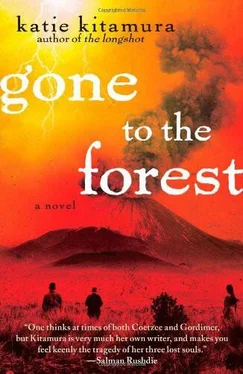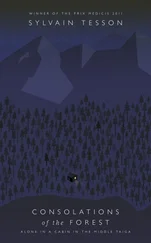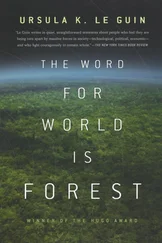Every week they drag the pools out of the water and the fish are culled. Then they are sold to buyers in the cities. They are packed into ice and flash frozen and shipped around the world. It is ridiculous, but they are earning themselves a reputation. His father talks about sustainable models of growth. He says there will be money soon, in the next year.
Tom does not like the river farm. When he looks into the water it is like the river is choking on the pools. The pools hovering like prey amidst the hyacinth. Being of the country, he cannot wish to dominate it in the same way as his father. Who in some ways is still a visitor here. But Tom knows his father is right. Soon the river farm will be established. The money will flow in like water. The money is floating in the river now, and it will save them.
Which is why his father stands and stares at the water — the way a man stares at a pile of gold. Tom watches his father looking at the pools. The pools can only be seen by the clear-sighted. They are nothing but the faintest trace in the water. The old man is dressed in dinner clothes. A rim of dust gathers around the toe of his shoe, is lifted on a slow gust of wind. The wind goes, and the dust is gone and the old man’s feet stand in the dirt.
The sound of a motor vaults across the silence. His father looks up. Tom sees the Wallaces’ Ford pulling across the land. A small cloud of dust follows as it kicks down the track. The dust pulls and tugs and puffs and grows behind the vehicle. The motor rumble comes closer. His father stands and watches as the car approaches. Tom has already turned and is walking back to the house. He turns his head once to look back. The car is inching closer across the horizon. Tom quickens his pace.
By the time the car has pulled through the gates of the house the servants are ready and the ice in the liquor trolley has been freshened. Tom stands in the shadow of the veranda and watches as the car pulls down the drive. His father stands at the foot of the steps, one hand slipped into his suit pocket. His face is expressionless. The driver pulls the door open. Mr. Wallace. Mrs. Wallace. A third figure steps out of the car. A young woman, in a brightly patterned dress, emerges from the interior.
The dorado is served in green sauce. It is served before the lamb and after the oysters and caviar. They sit around the table in silence as the wine is poured. The sun is setting and outside the sky continues to give off light. The dining room is open to the veranda but the room itself is half in darkness. Jose returns and lights the candles. His father nods to him and they listen to his footsteps as he goes. Then the room drops into silence again.
After a measurable pause — in which they sit and do not look at each other, and the candles waver and tremble in the silence — his father leans forward and picks up his wine glass. He takes a sip and examines the liquid hue. Mrs. Wallace looks at him. He almost looks benevolent, sitting in the candlelight with his wine glass in hand. Mrs. Wallace makes an attempt at conversation. (Mr. Wallace does not. Mr. Wallace knows better.)
“I have been saying to George, they must do something about this unrest amongst the natives. It is the Government’s responsibility to take some kind of action.”
The old man looks up from his glass of wine. He stares at Mrs. Wallace from across the table. Bravely, she continues.
“They should send in soldiers. They should teach them a lesson, before it gets out of hand. They are capable of anything, the natives. They are dangerous and cruel. It is impossible to reason with them. I wonder that they don’t see that.”
Mr. Wallace shakes his head.
“Enough, Martha.”
The old man ignores them both. He lowers his wine glass and looks across the table at the girl.
When the girl stepped out of the car she was a thin ankle followed by a ruffled tea dress. Her hair set in waves. Her mouth carefully rouged. She looked lost in the dress and in the car, a pantomime of vulnerability. Tom sits beside her at the dinner table. His father sits across. Tom watches the girl. He has no idea how old she is. She looks like a child but he already knows she is no child.
He learns the facts about the girl. She is Mrs. Wallace’s second cousin. She is twenty-nine and part French. She has won herself — through hard application, nothing coming easy in life — a questionable reputation. Although really there is no question about it at all, the meaning being clear to everyone. There was trouble at home and she was shipped to Mrs. Wallace, for a length of time unspecified. The meaning of that also being clear.
Mrs. Wallace does not know the girl but she is responsible for her. It is evident, they are in this together. She looks at the girl and her gaze is complicit. Tom thinks: being women the collusion comes to them naturally. He has heard it said before. Mrs. Wallace touches the girl on the wrist. She is careful but proprietary, proprietary but wary. She will be happy when the problem of the girl is solved and she will not miss her when she is gone.
For now she watches the girl. She measures up her assets and tests her strength in performance. Tom also watches the girl. She sits at the table. She speaks when she is spoken to. She is docile, she is polite. She is all this but there is nothing about her Tom trusts. He tells himself that she is not especially pretty. It is only her extreme pallor — she is so pale that when she blushes the color is hectic like a bruise — and her air of apparent youth that give the impression of attractiveness.
His father is a man of taste. The girl is nothing and yet — Tom watches his father watch the girl. The old man is still handsome. He is vain and vanity needs feeding. The women in the valley have been doing the feeding but the circle has been shrinking as one by one the farms close and the whites retreat to the city. Now there are not even the tourists to rely on.
This girl — sent out to Mrs. Wallace, small and pale and cunning — is perfectly shaped to capture the old man. She is nothing special but she is there and that is the difference. They are losing, have lost, the yardstick by which to measure the company of women. Not that Tom was ever a judge. He has not exactly been exposed to the female species.
Tom is filled with the urge to slap the girl across the face. His own vehemence taking him by surprise. Tom’s eyes stay on his father as he sips the wine and watches the girl.
“Carine.”
The girl looks up at him and then blinks. She waits for him to speak. Mr. Wallace and Mrs. Wallace look up from their plates. Tom does not look up. He stares down at his plate. He has not touched the food apart from the oysters. Topped with vinegar and white pepper. He slurped them down one after the other. Now his appetite is gone. He prods the food in front of him but does not eat.
“Do you like the fish?”
His father’s voice is slow and cajoling. The tone an offer, a proposition to the girl. Tom sees her find her terrain in the words. She and the old man look at each other. A transaction in their gazes and she opens herself up. Tom sees it happen: so the girl has aligned herself with the old man. Some intimacy has been established between them, in front of all of them, in that small and meaningless exchange.
The obscenity of it is not lost on anyone at the table. Mr. Wallace clears his throat and reaches for his wine glass. Mrs. Wallace looks down at her plate and pushes a chunk of fish with the tines of her fork. She toys with the fork and then sets it down without eating. Tom sees that they are ashamed. Of the trap that they have set, that is now in motion.
“Do you? Like the fish?”
Quickly, the girl reaches for her fork. She spears the flesh, breaking off a large piece and lifting it to her mouth. Her lips are pale and dry and cracked at the edges. It is the weather, Tom thinks. She is not used to the dryness of this country. She edges her mouth around the meat and swallows it whole. Tom looks down at his plate and slashes the fish with his fork.
Читать дальше










